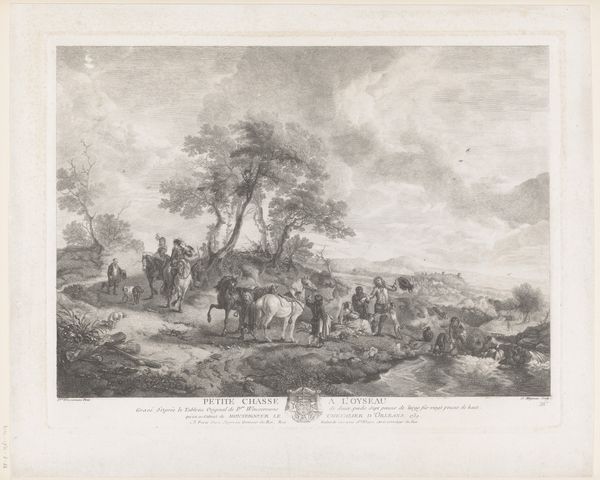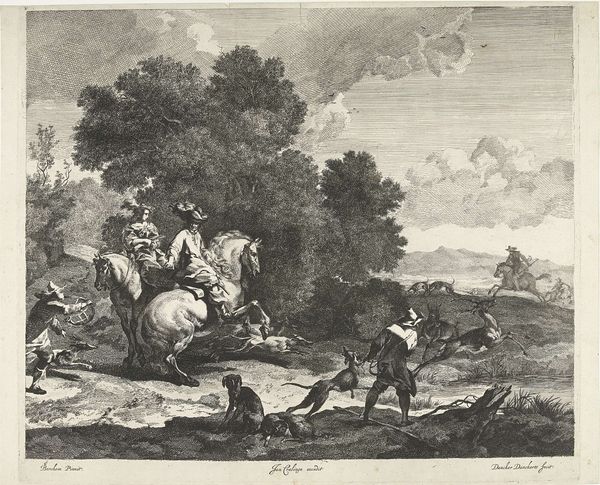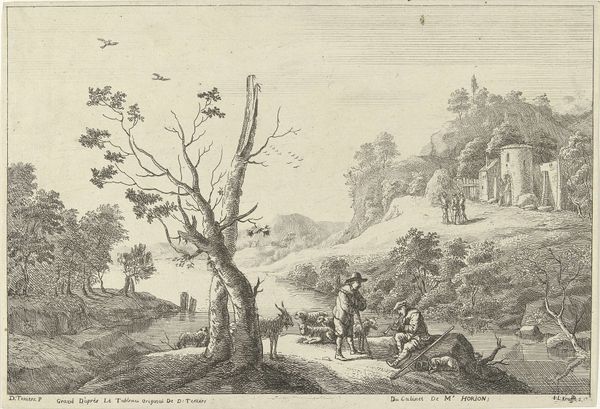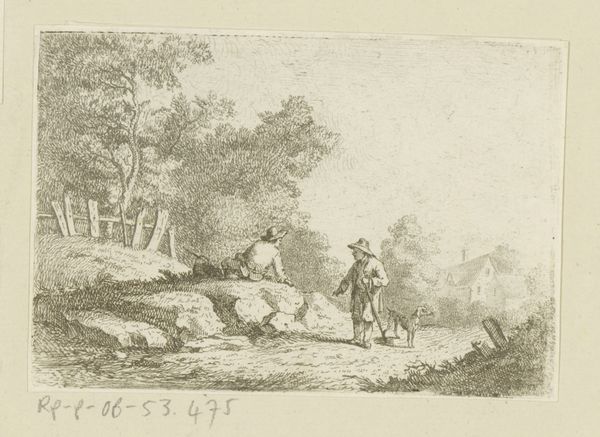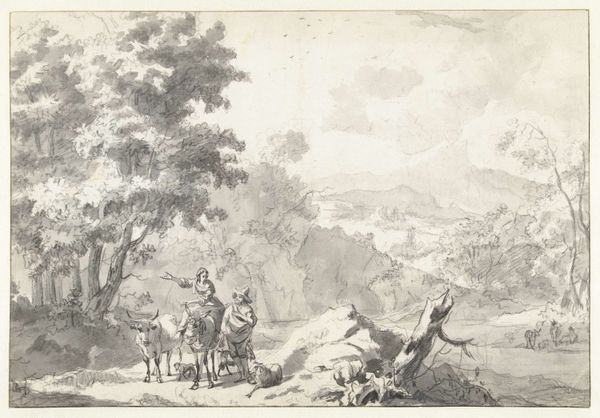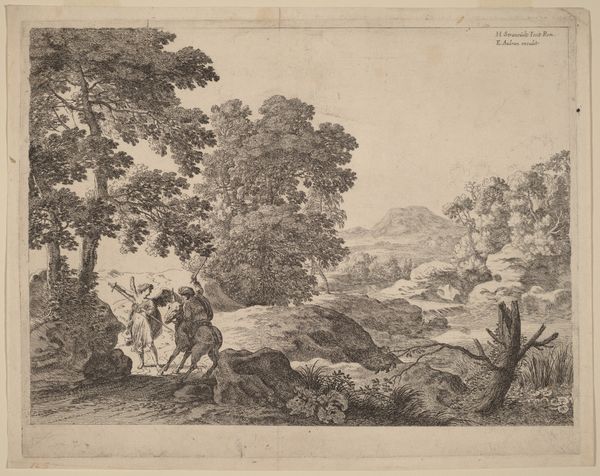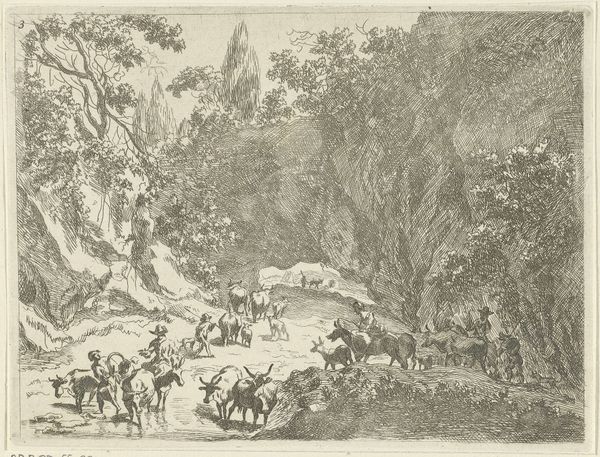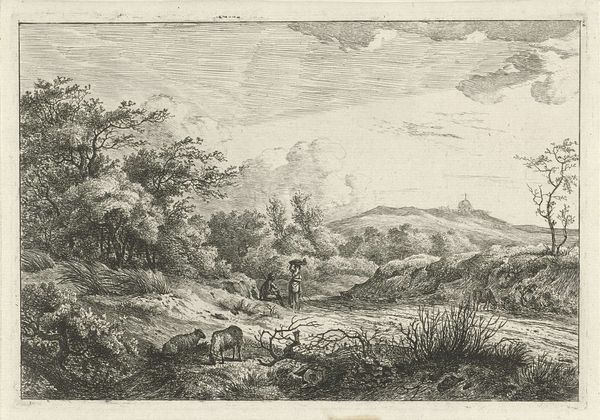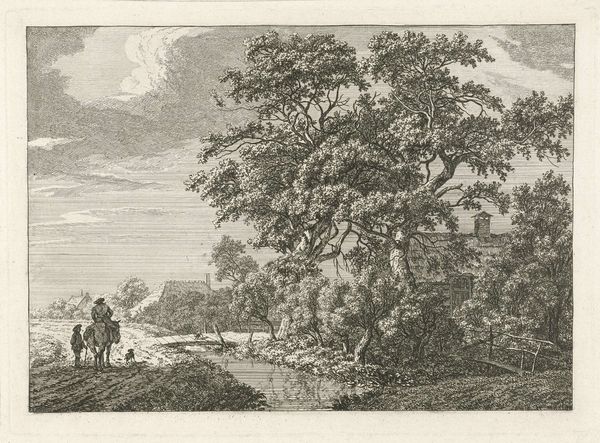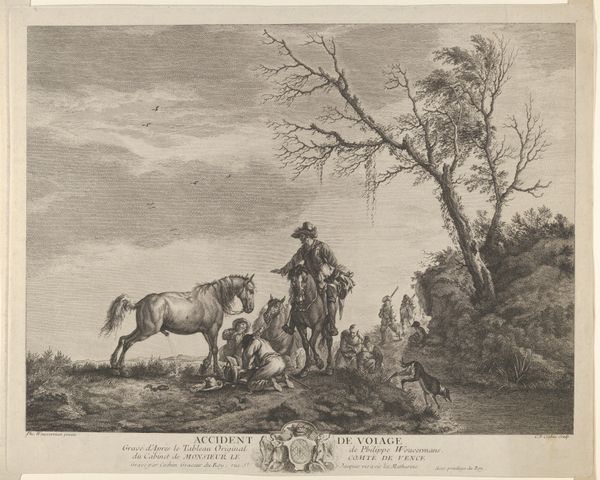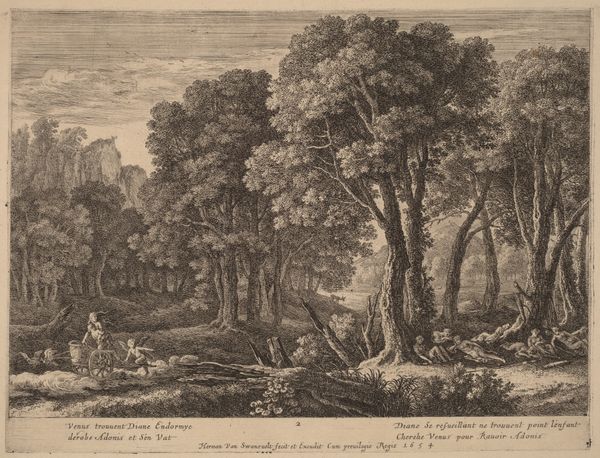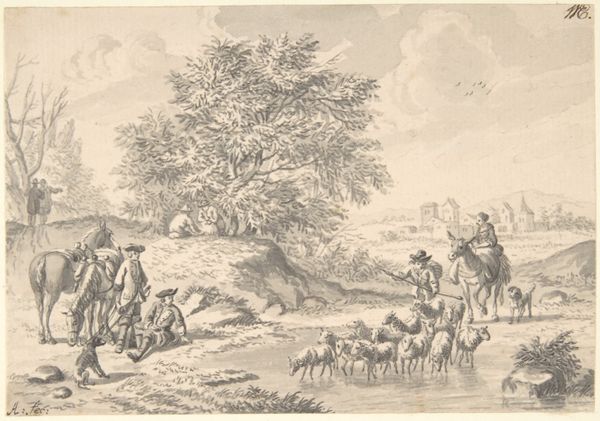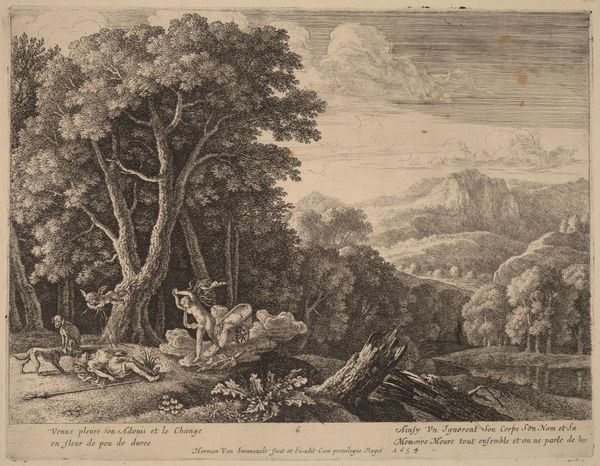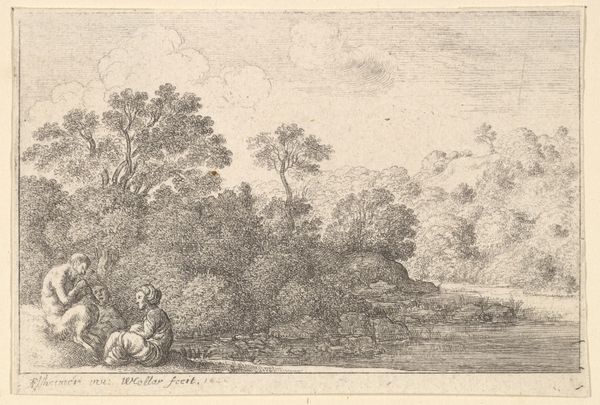
drawing, print, engraving
#
drawing
# print
#
landscape
#
figuration
#
soldier
#
horse
#
history-painting
#
engraving
Dimensions: sheet: 6 5/8 x 8 3/8 in. (16.9 x 21.2 cm) plate: 6 1/8 x 7 7/8 in. (15.5 x 20 cm)
Copyright: Public Domain
Curator: Hubert Robert created "Clash of the Cavalry" between 1745 and 1808. It's an engraving, currently housed at the Metropolitan Museum of Art. Editor: Visually, it’s immediately striking – a dynamic scene rendered with such fine, precise lines. The contrast creates a lot of drama, almost a chaotic energy within a very contained space. Curator: Robert's approach here really highlights the production of printed imagery. The careful etching and engraving required to reproduce this clash – the labor involved. It’s interesting how a scene of battle, of violent action, is mediated through this very controlled, meticulous process. Editor: Yes, absolutely, and it's fascinating how that control informs the viewer’s experience. Observe how the composition guides our eyes: from the slightly raised foreground to the dense thicket of riders and horses, all rendered with remarkable anatomical accuracy despite the limited tonal range. Curator: The social context is intriguing too. Consider the role of prints in disseminating images and ideas during this period. Engravings like this made historical scenes accessible to a wider audience, shaping perceptions of power, conflict, and perhaps even national identity. Editor: Agreed. Moreover, there’s an undeniably performative quality here. The exaggerated gestures of the riders, the rearing horses, speak to a particular aesthetic – a romanticized view of conflict perhaps intended to stir specific emotions in the viewer. Curator: Certainly. One could argue the engraving elevates warfare to the level of grand spectacle. But also note how the prints and drawings can democratize artwork for viewing when access was often limited for common people during its time. Editor: And in observing all these technical details, we come away seeing a layered effect – an intriguing snapshot where meticulous craft and dramatic flourish coalesce into a very dynamic image of historical warfare. Curator: Indeed, it's a work where material analysis sheds light on its socio-political reach and where attention to the aesthetics enhances one’s appreciation of art history. Editor: Absolutely, an excellent balance where production, and refined artistic sensibility informs, deepens our view.
Comments
No comments
Be the first to comment and join the conversation on the ultimate creative platform.
